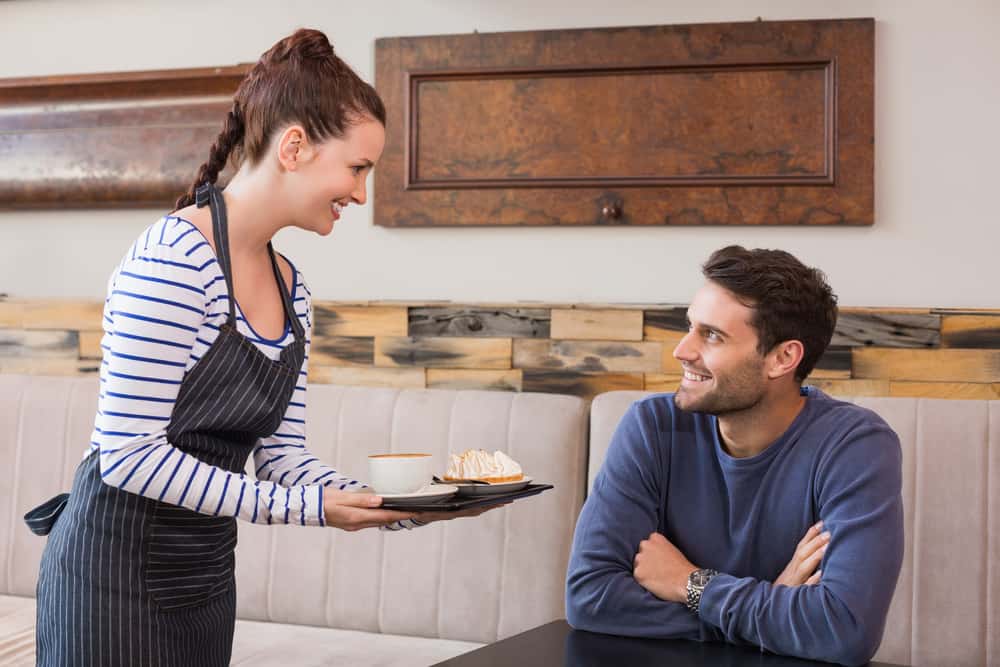
Have you ever considered the joys and benefits of eating alone? While society often emphasizes the importance of sharing meals with others, there’s a growing trend of people embracing solo dining experiences.
But why is it that you may find that you may prefer to eat alone?
Eating alone offers tranquility and a moment of personal reflection. It allows for an unhurried experience, free from the need to engage in conversation or adhere to social etiquette. This solitude can enhance focus on the meal, making it a mindful and restorative practice.
To further elaborate on and understand this phenomenon, join us as we explore the rising popularity of eating alone, the many reasons why someone might prefer this dining style, and how to overcome the social stigma associated with it. So, why not grab a seat at the table and discover the beauty that is dining solo?
Key Takeaways
- Rising Popularity: Solo dining is gaining traction globally, influenced by the need for personal time and the impact of social media.
- Global Trends: Restaurants worldwide are adapting to solo diners by offering dedicated seating and menus, especially in cities like Tokyo and Paris.
- Personal Benefits: Eating alone allows for judgment-free choices, focused savoring of food, and an opportunity for self-reflection.
- Challenging Norms: Solo dining is breaking societal expectations, and encouraging people to embrace independence and self-reliance.
- Role of Restaurants: Eateries are instrumental in normalizing solo dining by catering to the needs of individual diners.
The Rising Popularity of Eating Alone
As solo dining becomes increasingly popular, many are discovering the unique joys and benefits of eating alone. This trend reflects a growing appreciation for individual experiences, allowing people to savor their meals without social distractions. The shift towards solitary dining represents a significant cultural change, emphasizing personal contentment and the simple pleasure of a meal enjoyed in one’s own company.
The Influence of Social Media and the Need for Me-Time
Especially in a highly social era, taking personal time and finding moments of solitude can be a challenge. Social media has blurred the line between our public and private lives, leaving many of us feeling overwhelmed and craving some quiet time. Enter solo dining – an opportunity to disconnect and recharge while enjoying a meal. As more people embrace the importance of independence, the act of eating alone is becoming increasingly popular.
Solo Dining Trends Around the World
From bustling cities like Tokyo to the cozy cafes of Paris, solo dining is on the rise. Restaurants around the world are catering to this trend by offering dedicated seating and dining options for those who prefer to eat alone. In Japan, ramen bars with individual booths are growing in popularity, while European eateries are offering smaller tables and more intimate settings for solo diners. This shift in dining culture is a testament to the growing acceptance of eating alone as a pleasurable and fulfilling experience.
Reasons Why Some Prefer Eating Alone

Exploring the reasons why people choose to dine alone reveals a world where meals become far more than sustenance. This choice, often misunderstood as a sign of loneliness, is in fact a doorway to personal freedom, culinary adventure, and introspection.
The following points go into why individuals find solace and satisfaction in “lonely” solitary dining experiences, revealing how what appears to be a simple act of eating can be transformed into an enriching, self-fulfilling journey.
Relax and Enjoy Your Meal Without Entertaining Others
Eating alone offers a distinct serenity, a break from the perpetual need to engage in conversation.
When you dine solo, there’s no pressure to entertain a dining companion or to weave tales over dinner. This solitude transforms a meal into a tranquil retreat.
-
Freedom from conversation: Focus solely on your food, not on talking.
-
Personal space: Enjoy a meal in your bubble of calm.
-
Mental rest: Relieves you from the mental labor of socializing.
Eat Whatever You Want, Judgment-Free
Dining alone means liberating yourself from the eyes of judgment. You’re free to indulge in any dish, no matter how unconventional your choice might be.
It’s an opportunity to savor a lunch that’s entirely yours, selected without considering others’ preferences or criticisms.
-
Personal preference: Choose dishes solely based on your taste.
-
Experimentation: Try new or unusual foods without fear of judgment.
-
Guilt-free indulgence: Eat what you love without feeling self-conscious.
Savor the Flavors and Take Your Time
When you dine alone, you set the pace. There’s no rush to match the eating speed of companions.
It becomes a sensory experience, where you can truly appreciate the textures and flavors of your meal. This deliberate, unhurried approach to eating enhances the culinary experience.
-
Mindful eating: Focus on each bite and its flavors.
-
No rush: Eat at your own pace, without feeling hurried.
-
Heightened senses: Pay more attention to taste and aroma.
No Awkward Social Interactions or Small Talk
Eating alone sidesteps the awkward dance of small talk, the silent gaps filled with aimless chatter. It’s a relief, especially for those who find social interactions draining.
In this solitary dining bubble, the only company you need to keep is your own, and the conversation – if any – is internal and fulfilling.
-
Solace: Avoid the energy drain of small talk.
-
Comfort: Ease for those who find social situations stressful.
-
Autonomy: Control over your social engagement level.
Enjoy Your Favorite Music and a Peaceful Meal
The pleasure of eating alone often comes with the liberty to immerse oneself in personal music choices. When you go out to eat alone, the meal becomes a symphony of your favorite tunes paired with delectable dishes.
This solo dining experience allows for an intimate blend of personal taste in both music and food, creating a unique atmosphere that can’t be replicated in the company of others.
-
Personal soundtrack: Listen to your preferred music while eating.
-
Enhanced mood: Music of your choice elevates the dining experience.
-
Sensory combination: Enjoy the harmony of good food and great music.
Focus on Internal Thoughts and Enjoy Your Own Company
For people who enjoy eating alone, meals become moments of introspection. Dining solo provides a rare opportunity to reflect, plan, or simply be with one’s thoughts without interruption.
This form of solitude enables the appreciation of the company of oneself. It’s a time to reconnect with personal goals, reminisce, or just enjoy the quiet.
-
Introspection: Time to think deeply about personal matters.
-
Mental clarity: Clear your mind in a tranquil setting.
-
Self-appreciation: Embrace and enjoy your own company.
No Worries About Sharing Food or Feeling Guilty
When eating out alone, you have complete autonomy over your meal. There’s no need to consider others’ tastes or dietary restrictions.
This freedom allows you to order exactly what you want, how much you want, and eat it at your own pace. It eliminates the often unspoken social obligation of sharing dishes, ensuring that every bite is exactly what you crave.
-
Food autonomy: Full control over food choices.
-
No compromise: Select dishes based solely on your preference.
-
Unhurried dining: Eat at a pace that suits you, without external pressure.
Customizing Your Dining Environment
The act of eating alone more often grants you the power to tailor your dining environment to your liking. Whether it’s choosing a quiet corner in a café or sitting by a window in a bustling diner, you can select a spot that best suits your mood and needs.
This control over your environment adds another layer of comfort and enjoyment to the dining experience.
-
Choice of ambiance: Pick a spot that aligns with your mood.
-
Environmental control: Adjust seating, lighting, or temperature to your liking.
-
Personal space: Enjoy a meal in a setting that feels like your own.
Experiment with Different Cuisines
One of the joys of eating alone is the freedom to experiment with diverse cuisines. When alone in a restaurant, you are not constrained by the preferences or dietary restrictions of others.
This independence allows you to explore a variety of dishes and flavors, expanding your culinary horizons. You can indulge in spicy Thai food, savor delicate sushi, or dive into rich Italian pastas without having to consider anyone else’s palate. This adventure in dining enriches your understanding of global flavors and can transform an ordinary meal into a culinary exploration.
-
Diverse choices: Try different cuisines without compromise.
-
Culinary adventure: Discover new flavors and dishes.
-
Educational experience: Learn about different cultures through their food.
Greater Control Over Your Budget
Choosing to eat alone often grants greater control over your dining budget. When you eat alone, you decide how much to spend, which can lead to more economical choices. This control is particularly beneficial for those living alone or managing tight budgets.
It allows for strategic decisions about where and what to eat, aligning dining experiences with financial goals. Whether it’s opting for a modest lunch alone or splurging on a gourmet dinner, the financial autonomy of solo dining is empowering.
-
Budget management: Spend according to your own financial plan.
-
Economical choices: Opt for meals that fit your budget.
-
Splurge wisely: Indulge in higher-end meals on your terms.
Enhancing Your Culinary Knowledge and Appreciation
Eating meals alone can significantly improve your culinary knowledge and appreciation. Without distractions, you can focus on eating, noting the intricate flavors and ingredients used in each dish.
This solitary dining experience encourages a deeper understanding of the culinary arts. It’s an educational journey where each meal becomes a lesson in taste, texture, and presentation. For food enthusiasts and aspiring chefs, these moments of undisturbed tasting and analysis are invaluable.
-
Flavor focus: Pay close attention to the taste and composition of dishes.
-
Educational opportunity: Learn about cooking techniques and ingredients.
-
Appreciation for culinary arts: Develop a deeper respect for the art of cooking.
Reduced Anxiety Over Dietary Restrictions
For individuals with specific dietary needs or preferences, eating alone in public can significantly reduce anxiety. When you’re sitting alone at a table, the focus is solely on accommodating your dietary requirements, without having to explain or justify your choices to others.
This scenario is particularly liberating for those with allergies, intolerances, or lifestyle-based dietary choices, such as veganism. It provides a stress-free environment to enjoy your meal, knowing that your unique dietary needs are the only ones that matter at that moment.
-
Stress-free dining: No need to explain or defend your dietary choices.
-
Personal health focus: Prioritize your dietary needs without compromise.
-
Comfortable experience: Enjoy meals in a setting free from dietary judgment.
Overcoming the Social Stigma of Dining Solo
Solo dining may still be met with raised eyebrows, but it’s an opportunity to stay strong when you are alone and challenge outdated norms. Who says you can’t enjoy a meal on your own? As more people embrace the importance of independence and self-reliance, it’s essential to break free from societal expectations and embrace the pleasures of dining alone.
Embracing the Art of Self-Care
Solo dining is a form of self-care, allowing you to find peace in solitude and focus on your own needs and desires. By choosing to eat alone, you’re giving yourself permission to indulge in your own company and fully immerse yourself in the dining experience. Remember, self-care is not selfish – it’s a necessary part of maintaining your well-being.
The Role of Restaurants in Normalizing Solo Dining
Restaurants play a crucial role in normalizing solo dining. By offering dedicated seating and menu options for single diners, eateries can help break down the social stigma surrounding eating alone. The more restaurants cater to solo diners, the more accepted and celebrated the practice will become.

Tips for Enjoying Your Solo Dining Experience
To fully embrace the experience of dining solo, there are several strategies one can employ. These tips enhance the enjoyment of the meal and also transform a routine activity into a special, self-focused event.
Whether at home or in a restaurant, these suggestions below aim to enrich the solo dining experience, making it as fulfilling and pleasurable as dining with others.
Choosing the Right Venue
The venue you choose can make all the difference; consider our list of places to go alone to clear your head for some inspiration. Opt for a restaurant with a welcoming atmosphere and a layout that accommodates single diners. Look for places with bar seating, small tables, or even communal dining options to make your experience more comfortable and enjoyable.
Engaging in Mindful Eating Practices
When dining alone, take the opportunity to practice mindful eating. Focus on the sensory experience of your meal, appreciating the flavors, textures, and aromas of each dish. By being fully present in the moment, you can enhance your dining experience and form a deeper connection with your food.
Embracing the Opportunity for Self-Reflection and Creativity
While being alone with your thoughts can be dangerous for some, solo dining provides a controlled environment for self-reflection and creative thought.
Use this time to reflect and spend some time alone in your day, brainstorm ideas, or simply let your thoughts wander, a practice often embraced by creative people alone. You might be surprised by the insights and inspiration that arise during your meal.
Bring a Book or Journal
A book or journal can serve as a great companion during your solo dining experience. Reading a book can transport you to another world while you enjoy your meal, while journaling allows you to capture your thoughts and reflections.
Treat Yourself
Don’t hesitate to treat yourself when dining alone. Order your favorite dish or try something new and adventurous. You deserve to indulge in a delicious meal, so make your solo dining experience as enjoyable as possible.
Disconnect from Technology
Use your solo dining experience as an opportunity to disconnect from technology. Put your phone away and resist the urge to scroll through social media or check emails. This digital detox can help you become more present at the moment and enhance your overall dining experience.
Strike Up a Conversation with the Staff

If you’re feeling sociable, strike up a conversation with the restaurant staff. They can provide you with menu recommendations and interesting tidbits about the restaurant’s history or the dishes they serve. This interaction can add a unique touch to your solo dining experience.
Embrace the Opportunity to People-Watch
People-watching can be a fascinating pastime, but creative people like to be alone for deeper self-reflection during their solo dining experience. Observe the interactions and dynamics around you, and let your imagination wander. You may find inspiration for a story, gain insights into human behavior, or simply be entertained by the world around you.
Develop a Solo Dining Bucket List
Create a bucket list of restaurants, cafes, or dishes you’d like to try during your solo dining adventures. This list can serve as a guide and inspiration for your future culinary experiences, giving you something to look forward to and motivating you to continue exploring the joys of dining alone.
Conclusion
Taking some healthy alone time to enjoy a meal can be a liberating and rewarding experience. Solo dining offers numerous benefits, from relaxation and harnessing the power of introspection to exploring new cuisines and fostering a healthier relationship with food.
As the last morsel of this exploration settles, consider the unasked questions about your own dining habits. Does the presence of others enrich your meal, or does it divert the flavor of your thoughts? Eating alone isn’t just about savoring food; it’s about tasting the essence of our own company. What will you discover in the silence between bites?
Eating alone is more than just a dining preference – it’s a way to reconnect with yourself and experience the world in a whole new way.
By overcoming the social stigma and embracing the art of eating alone, you shape your own destiny and transform mealtime into an opportunity for personal growth.
So go ahead – book that table for one, savor the flavors, and relish the freedom and independence that comes with dining solo. Bon appétit!
FAQs
Q: Do people who eat alone often feel lonely?
A: Not necessarily. Many individuals who choose to eat alone do so because they prefer solitude, not because they are lonely. It can be a conscious decision to enjoy their own company.
Q: Is it common for young adults to eat alone in restaurants?
A: Yes, it is becoming increasingly common for young adults to dine alone, especially in fast-paced urban environments where solo dining is more socially accepted.
Q: How can I feel more comfortable eating alone in a fancy restaurant?
A: Bringing along a good book or finding a quiet spot to enjoy the meal can help ease any discomfort. Remember, you deserve to treat yourself to a nice meal and enjoy the experience.
Q: Is it okay to feel embarrassed about eating alone in public?
A: It is normal to feel a bit self-conscious at first, but many people find that once they do it, they realize that it’s not a big deal. Over time, it can become a comfortable and enjoyable experience.
A: Remind yourself that enjoying a meal solo is a sign of independence and self-care. Focus on the pleasure of your meal and embrace the freedom to dine on your own terms.
Q: Can eating alone impact one’s eating habits?
A: Some individuals find that when dining alone, they tend to eat less or choose simpler dishes. However, others may take the opportunity to indulge in their favorite foods without compromise.
A: Not necessarily. Enjoying solo meals does not indicate an aversion to socializing. Many people savor their alone time for meals but are still socially engaged in other aspects of life.
